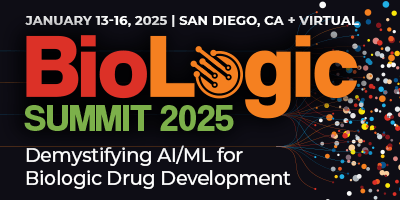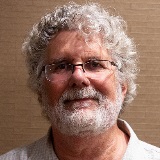演讲者
Filter by:

Brennan Abanades, PhD, Postdoctoral Fellow, Large Molecule Research, Roche

Brennan Abanades is a Postdoctoral Fellow at Roche Large Molecule Research in Munich, where he specializes in developing machine learning approaches for epitope-targeted antibody design. Brennan completed his PhD in the Oxford Protein Informatics Group under Professor Charlotte Deane, focusing on computational methods to aid in antibody discovery. His work included creating machine learning models for antibody structure prediction, such as ImmuneBuilder and ABlooper, as well as databases like PLAbDab.

Bismark Amofah, PhD, Senior Scientist, Biologics Engineering, AstraZeneca

Dr. Amofah is currently an antibody engineer working in the Biologics Engineering department at AstraZeneca. Dr. Amofah received his PhD in biochemistry from the University of Arizona studying protein engineering methods to understand kinase signaling and protein-protein interactions, after which he joined AstraZeneca. At AstraZeneca, Dr. Amofah is part of the Biologics Engineering Developability and Analytics group where he is working on optimizing HT developability assays and generating unique developability datasets.
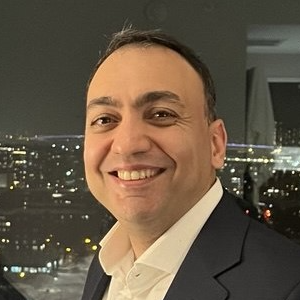
Morteza Babaie, Senior AI Scientist, Kisoji Biotechnology Inc

Dr. Morteza Babaie is Head of AI at KisoJi Biotechnology, driving machine learning innovations to transform drug discovery. He joined as a Senior AI Scientist in 2022, and rapidly expanded KisoJi's AI team while fostering groundbreaking research. He has contributed to more than 50 research papers and several patents, including methods for AI-driven antibody selection integrating structural data. Dr. Babaie is also a Postgraduate Affiliate at the Vector Institute and an adjunct professor at the University of Waterloo. With expertise in deep learning and medical imaging, he is passionate about leveraging AI to solve complex challenges in drug development.

David A. Baker, PhD, Henrietta & Aubrey David Endowed Professor, Biochemistry, University of Washington

David Baker, Ph.D. is the director of the Institute for Protein Design, a Howard Hughes Medical Institute Investigator, the Henrietta and Aubrey Davis Endowed Professor in Biochemistry, and an adjunct professor of genome sciences, bioengineering, chemical engineering, computer science, and physics at the University of Washington. His research group is a world leader in protein design and protein structure prediction. He received his Ph.D. in biochemistry with Randy Schekman at the University of California, Berkeley, and did postdoctoral work in biophysics with David Agard at UCSF. Dr. Baker is a member of the National Academy of Sciences and the American Academy of Arts and Sciences. Dr. Baker is a recipient of the Breakthrough Prize in Life Sciences, Irving Sigal and Hans Neurath awards from the Protein Society, the Overton Prize from the ISCB, the Feynman Prize from the Foresight Institute, the AAAS Newcomb Cleveland Prize, the Sackler prize in biophysics, and the Centenary Award from the Biochemical society. He has also received awards from the National Science Foundation, the Beckman Foundation, and the Packard Foundation. Dr. Baker has published over 500 research papers, been granted over 100 patents, and co-founded 11 companies. Seventy-five of his mentees have gone on to independent faculty positions.
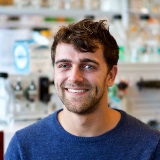
Nathaniel Bennett, PhD, Co-Founder, Xaira Therapeutics

Nate Bennett is a Co-Founder and Scientist at Xaira Therapeutics. Nate's work at Xaira focuses on the de novo design of antibody therapeutics. Nate earned his PhD at the University of Washington in the lab of David Baker; during his PhD, Nate developed a deep learning-based pipeline for the design of protein-binding proteins and also extended this work to the design of de novo single-domain antibodies. Prior to his PhD, Nate earned a B.S. in Chemical Engineering at the University of Wisconsin.
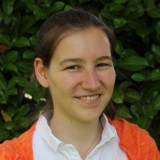
Klara Bonneau, PhD Student, Computational Biophysics, Freie Universität Berlin

I am a PhD student in computational biophysics under the supervision of Prof. Cecilia Clementi at Freie Universität Berlin. During my studies at the French École Polytechnique, I became interested in biophysics and especially computational biophysics. After a research internship in computational neuroscience at the CNRS in the group of Prof. Alain Destexhe, I completed the double-master program between Freie Universität Berlin and École Polytechnique, for which I was awarded the “Physik-Studienpreis”, that the physical society of Berlin grants to the best masters in the states of Berlin and Brandenburg. In my Master’s Thesis, I investigated the interplay between physics-based and machine learned energy terms for the definition of coarse-grained protein models under the supervision of Prof. Cecilia Clementi. My main research topics today are the definition of chemically transferable coarse-grained models for proteins using machine-learning as well as the interpretation of these machine-learned models.

Andrew R.M. Bradbury, MD, PhD, CSO, Specifica, an IQVIA business

Andrew Bradbury is Chief Scientific Officer of Specifica. He trained in medicine at the universities of Oxford and London and received his PhD from the university of Cambridge at the MRC Laboratory of Molecular Biology under the guidance of Nobel Laureate, Cesar Milstein. He has worked in the fields of phage and yeast display, library generation, antibody engineering and Next Generation Sequencing for over thirty years. He was a Group Leader at Los Alamos National Laboratory before founding Specifica. Specifica's mission is to enable companies developing therapeutic antibodies with the world’s best antibody discovery platform.

Bryan Briney, PhD, Assistant Professor, Immunology & Microbial Science, Scripps Research Institute

Dr. Briney is an Assistant Professor in the department of Immunology and Microbiology at Scripps Research. He received his PhD from Vanderbilt University under the mentorship of James Crowe and trained as a postdoctoral fellow in Dennis Burton’s laboratory at Scripps. The Briney Lab is focused on large-scale study of the humoral immune response to infection and immunization and maintains active research programs in HIV vaccinology, systems immunology of hemorrhagic fever viruses, and early B cell development.

David J. Brockwell, PhD, Professor, School of Molecular and Cellular Biology, University of Leeds

Professor Brockwell is an academic in the School of Molecular and Cellular Biology and a member of the Astbury Centre at the University of Leeds in the UK. He undertook his undergraduate studies (Pharmacy) and PhD at the University of Manchester, before joining Leeds first as post-doctoral researcher and then as a Faculty member. Current research focusses on understanding the effects of force on protein structure and function and the aggregation of therapeutic and disease-causing proteins.

Matteo Cagiada, PhD, Postdoctoral Fellowship Program, Novo Nordisk Foundation, University of Copenhagen

Matteo Cagiada is a Novo Nordisk Postdoctoral Fellow at the University of Copenhagen. A former biophysicist, he deepened his knowledge of protein biochemistry during his PhD at the University of Copenhagen under the supervision of Prof. Kresten Lindorff-Larsen, specialising in the prediction of variant effects and molecular mechanisms behind loss of function. As part of his postdoctoral fellowship, he is currently at the University of Oxford as a member of the Oxford Protein Informatic Group, supervised by Prof. Charlotte Deane, where his research focuses on protein dynamics and immunoinformatics.

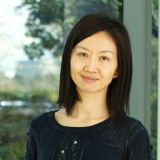
Qing Chai, PhD, Research Advisor, Biotechnology Discovery Research, Eli Lilly and Company

I am a passionate drug developer, with wide range experience in protein chemistry, structural biology, protein engineering, computational biology & biophysics. I lead team combining data science and experimentation to accelerate biologics discovery and development for unmet medical needs.

Hao Chen, PhD, Assistant Professor, University of Illinois Chicago

Hao Chen is an Assistant Professor at the University of Illinois Chicago. Prior to that, he obtained his PhD in Computer Science at the University of California, Riverside, supervised by Professor Tao Jiang. His research focuses on the development of machine learning methods using large-scale single-cell and spatial omics data to study the programs of cellular organization, communication, and differentiation, and their impact on tissue development, health, and disease. He is also interested in drug discovery and biological sequence modeling for learning isoform functions and alternative splicing.

Alan Cheng, PhD, Senior Director, Modeling and Informatics, Merck Research Labs

Alan Cheng earned his undergraduate degrees at UC Berkeley in Electrical Engineering & Computer Science (EECS) and Molecular & Cellular Biology (MCB), and earned his PhD at UC San Francisco. After stints at Pfizer and Amgen in Cambridge and San Francisco, in 2017 he joined a new site for Merck & Co. in San Francisco, where he is currently Senior Director leading a group working in computer-aided drug design for biologics and small molecules as well as deep learning for lead optimization. He is also the overall lead for Merck’s Discovery Chemistry AI/ML initiative.

Christopher R. Corbeil, PhD, Research Officer, Human Health Therapeutics, National Research Council Canada

Dr. Christopher Corbeil is a research officer at the National Research Council Canada (NRC) who specializes in the development and application of computational tools for biotherapeutic design and optimization. He is also an associate member of the McGill Biochemistry Department and teaches classes in Structure-Based Drug Design at McGill University. After receiving his PhD from McGill University, he joined the NRC as a Research Associate investigating the basics of protein-binding affinity. Following his time at the NRC he joined Chemical Computing Group as a research scientist developing tools for protein design, structure prediction, and binding affinity prediction. He then decided to leave private industry and rejoin NRC with a focus on antibody engineering. Dr. Corbeil has authored over 30 scientific articles and is the main developer of multiple software programs.

Rebecca Croasdale-Wood, PhD, Senior Director, Augmented Biologics Discovery & Design, Biologics Engineering, Oncology, AstraZeneca

Rebecca is an innovative leader responsible for the implementation of novel and disruptive in silico technologies to increase the speed of discovery and quality of biologics therapeutics. She is an experienced antibody engineer with structural biology expertise and was co-inventor of the CrossMab technology that is now leading the way in approvals for multi-specific antibody therapeutics. She has authored 30+ patents and publications in the field of antibody engineering.
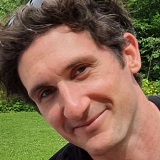
Samuel Demharter, PhD, Senior Data Scientist, Discovery Data Science and Protein Science & Technologies, Genmab

Samuel Demharter works as a Senior Data Scientist at Genmab in Copenhagen, focusing on using AI and machine learning to support the development of new biologic therapies. Samuel has contributed to various projects that aim to enhance the functionality and developability of biologic drugs. Before joining Genmab, he worked at Abzu, where he worked on a range of different AI projects with Danish and international companies and hospitals. Samuel's experience includes work at Lundbeck, where he was involved in target discovery and biomarker projects. He holds a PhD from the University of Oxford, with a focus on systems biology.

Frances Ding, PhD, Machine Learning Scientist, Prescient Design, Genentech

Frances is a Machine Learning Scientist at Genentech, where she is part of the Frontier Research team within Prescient Design. She received her PhD from UC Berkeley in August 2024, advised by Jacob Steinhardt and Moritz Hardt. She also holds an MPhil in Machine Learning from the University of Cambridge (2018) and a BA in Biology from Harvard University (2017).
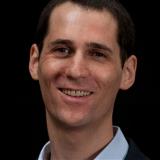
Ron Dror, PhD, Associate Professor, Computer Science, Artificial Intelligence Lab, Stanford University

Dr. Dror is an Associate Professor of Computer Science in the Stanford Artificial Intelligence Lab, where he leads a research group that uses molecular simulation and machine learning to elucidate biomolecular structure, dynamics and function, and to guide the development of more effective medicines. He collaborates extensively with experimentalists in both academia and industry. Before joining Stanford, Dr. Dror served as second-in-command of D. E. Shaw Research, a hundred-person company. He earned graduate degrees in Computer Science and Biology at MIT and the University of Cambridge.
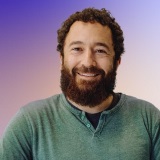
Hunter Elliott, PhD, Senior Director, Machine Learning, BigHat Biosciences

Hunter is an interdisciplinarian with a decade of experience developing machine learning tools to solve biomedical research problems. Moving from biophysics into computer vision during his PhD research at The Scripps Research Institute and Harvard Medical School, he then founded and led the Image and Data Analysis Core at Harvard Medical School. He was an early member of PathAI where he helped build the machine learning tech, platform, and team and led ML research. At BigHat he has developed novel predictive and generative methods for antibody engineering before recently taking on leadership of ML.
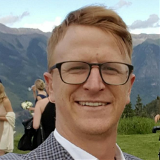
M. Frank Erasmus, PhD, Head, Bioinformatics, Specifica, an IQVIA business

M. Frank Erasmus is the head of bioinformatics at Specifica, Inc. where he specializes in the use of next-generation sequencing technologies and software development to aid in the design of and selection from therapeutic antibody libraries. Formerly, Frank was awarded a national fellowship from the National Cancer Institute for his translational research associated with B cell precursor acute lymphoblastic leukemia conducted at the Spatiotemporal Modeling Center and Los Alamos National Labs. He brings over 13 years of experience in both biotechnology and academic settings in the development and characterization of therapeutic antibodies using theoretical modeling, bioinformatics, and experimental approaches.

Monica L. Fernandez-Quintero, PhD, Staff Scientist, General Inorganic & Theoretical Chemistry, Scripps Research Institute

Monica Fernández-Quintero studied Theoretical Chemistry at the University of Innsbruck. During her PhD she demonstrated how molecular dynamics simulations can improve the structure prediction of proteins, i.e., antibodies and ion channels. Already since her Bachelor thesis 2015 Monica is working on the dynamics of antibodies and graduated in 2020. She already authored several papers, gave talks, and presented posters on international conferences featuring various aspects of antibody and T-cell receptor dynamics. Since 2023 she joined the lab of Prof. Andrew Ward, combining structural biology with physics-based machine learning approaches to characterise protein-protein binding interfaces, facilitating the design of antibodies and de-novo proteins.

Dana I. Filoti, PhD, Associate Director of Scientific Architecture, Development Sciences Data and Digital Strategy, Abbvie

Dana Filoti is Associate Director, Development Sciences Data and Digital Strategy, focusing on the Biologics CMC Data Architecture. She received her PhD in Materials Science from the University of New Hampshire and Bachelor's degree in Physics from the University of Bucharest. She joined Abbvie after working as a Post-Doctoral fellow with Genentech and the Biomolecular Interaction Technologies Center (BITC) on the development of instrumentation to measure protein charge and macromolecular interactions of proteins at high concentration. Her current research focuses on transformative data automation and nominal analysis strategies to interpolate multimodal CMC data and knowledge platforms.

Francis Gaudreault, PhD, Associate Research Officer, Human Health Therapeutics, National Research Council Canada

Francis obtained his PhD in Biochemistry from University of Sherbrooke in 2015, during which he developed a molecular docking program for docking small molecules to flexible protein or RNA targets. While doing his PhD studies, Francis co-founded a successful IT company for automating the management of scientific conferences. Francis joined the National Research Council (NRC) of Canada in 2016, where he has taken part in and led various efforts in the discovery and engineering of antibodies or other biologics. In such efforts are included the structure prediction of antibodies alone or in complex, the affinity assessment of antibody-antigen complexes, and the detection of antibody developability issues. Francis is leading the technical efforts in using artificial intelligence for antibody discovery.

Vladimir Gligorijevic, PhD, Senior Director, AI/ML Prescient Design, Genentech

Vladimir Gligorijevic is the senior director of AI-ML at Prescient Design, within Genentech R&D (gRED). He was originally trained as a physicist and earned a master’s degree in theoretical physics from the University of Belgrade. He then studied computer science and bioinformatics, with a focus on data integration via machine learning, with applications to protein and genome annotation, completing his Ph.D. at Imperial College London. Afterwards, he joined the Flatiron Institute, where he stayed for almost four years. While there, he worked on developing new machine learning methods for identifying active and binding sites on proteins, building methods with unprecedented scale and accuracy properties. Gligorijevic’s work on protein structure-function prediction was the motivation for new approaches to directly integrating protein function and protein properties into a deep-learning based approach to protein design. This work was the foundation for several approaches to macromolecular design. Gligorijevic co-founded Prescient Design and has co-led the integration of the company into the Roche family and Large Molecule Drug Discovery (LMDD) at gRED.
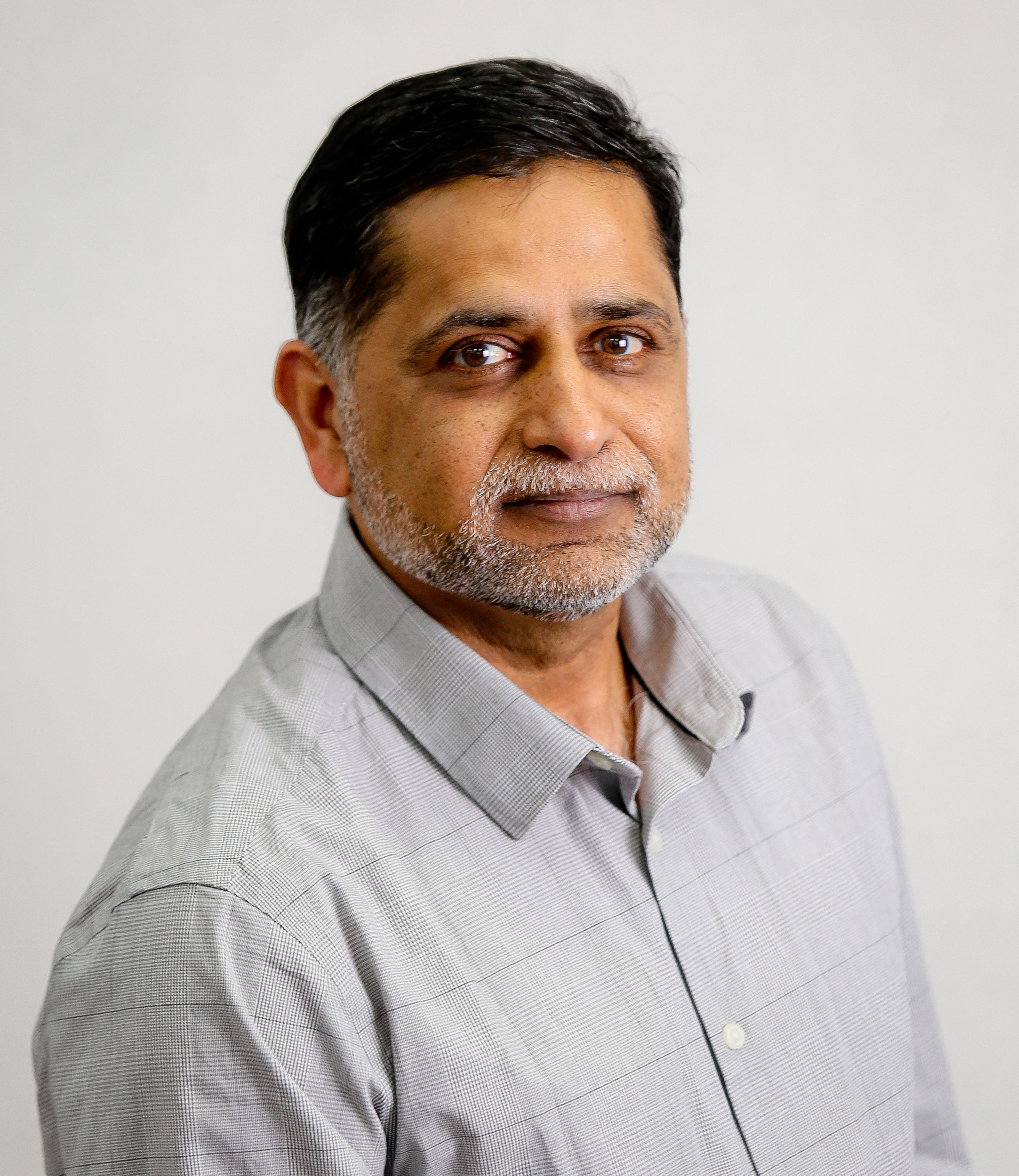
Sridhar Govindarajan, Co Founder & CTO, IT, ATUM

ATUM’s Co-founder and CIO, Dr. Sridhar Govindarajan leads computataional, engineering, security and automation efforts - including developing AI methods for Antibody Engineering. Prior to founding ATUM, Dr. Govindarajan held positions at Maxygen and Eragen Biosciences. His thesis on protein folding and evolution laid the groundwork for ATUM’s GPS technologies. Dr. Govindarajan received his PhD in Computational Chemistry/Biophysics from the University of Michigan and holds an undergraduate degree from Indian Institute of technology, Bombay.
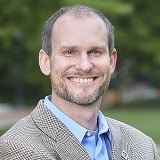
Jeffrey J. Gray, PhD, Professor & Research Mentor & Outreach Advisor, Chemical & Biomolecular Engineering, Johns Hopkins University

Jeffrey J. Gray is Professor of Chemical and Biomolecular Engineering at the Johns Hopkins University, with joint appointments in the Program in Molecular Biophysics and the Sidney Kimmel Comprehensive Cancer Center (Oncology). He earned his B.S.E. in chemical engineering at the University of Michigan and his Ph.D. in chemical engineering at the University of Texas at Austin, and he completed postdoctoral training at the University of Washington. His research focuses on computational protein structure prediction and design, particularly protein-protein docking, antibody engineering, membrane proteins, protein-carbohydrate interactions, and deep learning. Gray is a Fellow of the AIMBE, and his awards include the AIChE’s David Himmelblau Award, the Beckman Young Investigator Award, the Johns Hopkins Alumni Association Excellence in Teaching Award, and the Capers and Marion McDonald Award for Excellence in Mentoring and Advising. He serves on the editorial board of Proteins, and he is the Co-Director of the Rosetta Commons. He is also the Director of the NSF-supported Rosetta Commons Summer Intern (REU) Program and the Rosetta Commons Post-Baccalaureate Program. At Johns Hopkins he is a member of the Diversity Leadership Council and a co-founder of the Homewood Council on Inclusive Excellence, through which he works to create more inclusive and equitable research environments. Further information about Prof. Gray and his research group is available at http://graylab.jhu.edu. He shares on Twitter as @jeffreyjgray.

Victor Greiff, PhD, Associate Professor, Immunology, University of Oslo

Dr. Victor Greiff is Associate Professor for Computational and Systems Immunology at the University of Oslo. His work focuses specifically on the development of machine learning, computational and experimental tools for the analysis, prediction and engineering of adaptive immune receptor repertoires.

Per Greisen, PhD, President, BioMap

Prior to joining BioMap, Per spent several years at Novo Nordisk, where he was Vice President for Computational Drug Design and also served as an interim VP for Research Engineering.. Per established and led the De Novo Protein Design Group of Novo Nordisk, driving significant advancements in protein engineering and discovery. He was part of multiple protein engineering programs and achieved notable successes, including Mim8 which is currently in Phase 3. Per has also benefitted from experience in startups including Enevolv (now Gingko Bioworks) who he joined in 2019 in Boston, specializing in protein engineering, and was part of engineering SYNB1934 (Phase III). Per received his bachelor’s degree in Biochemistry and master’s degree in Bioinformatics from the University of Copenhagen. He started his PhD in quantum mechanics, neural networks, and protein folding but he quickly pivoted his research area to computational protein design. In 2012 Per went to the University of Washington to focus on computational protein design of metalloproteins in David Baker’s Lab where he led work on the evolution of enzymes and small molecule binders.
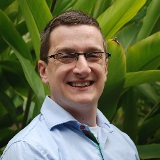

Alissa Hummer, PhD, Postdoctoral Researcher, Biochemistry, Stanford University

I am a PhD student in the lab of Prof Charlotte Deane (Oxford Protein Informatics Group) at the University of Oxford, UK. My PhD research spans machine learning and protein engineering, with a particular focus on therapeutic antibody design. I am developing machine learning models to predict and optimise sequence- and structure-based properties of antibodies in pursuit of the ultimate aim to design better antibody therapeutics, at reduced timescales and costs.

Gilad Kaplan, PhD, Director, Biologics Engineering, AstraZeneca

My background is in using protein and antibody engineering to develop Biologic Therapeutics. During my PhD studies at Tel Aviv University, I studied the conformational changes in HIV gp120 using conformationally sensitive antibodies. I then moved on to design more stable and less immunogenic anti-cancer immunotoxins during my postdoctoral studies at the National Cancer Institute. After my postdoctoral fellowship I started working for AstraZeneca where I am currently an Associate Director and head of the Developability and Analytics group at the department of Biologics Engineering (BE). In this capacity I have contributed to multiple pipeline projects, including AstraZeneca’s anti-SARS-COV-2 antibody cocktail AZD7442 (EVUSHELD).
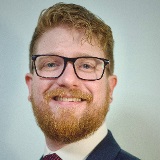
Peter Kelly, Director, Open Datasets Initiative, Align to Innovate

Pete Kelly is the Director of the Open Datasets Initiative at Align to Innovate. He specializes in lab automation, big data generation, and synthetic biology. In his current role, Pete spearheads efforts to promote the collection and sharing of open access data, facilitates innovation through community benchmarking efforts, and fosters collaboration across scientific disciplines. Before joining Align to Innovate, Pete was an early employee at Zymergen, where he led a team building the world's first truly modular robotic workcells for high-throughput microbial cell engineering. This project was adopted by Ginkgo Bioworks and continues to be a key part of their automation technology stack. Pete's past experience also includes his tenure in Jay Keasling's Lab at the Joint Bioenergy Institute, part of Lawrence Berkeley National Lab, where he contributed to research in bioenergy. Throughout his career, Pete has been driven by a passion for leveraging technology to accelerate scientific discovery and improve experimental reproducibility. He is committed to fostering advancements to democratize lab automation, and to supporting open science initiatives in the scientific community.

Tanja Kortemme, PhD, Professor, Bioengineering & Therapeutic Sciences, University of California, San Francisco

Tanja Kortemme is a Professor of Bioengineering at the University of California San Francisco. Her laboratory’s scientific contributions include foundational methods for computational protein design and their application to engineer biological structures and functions not existing in nature. A more recent research focus uses systematic molecular perturbations to map and control cellular behavior. She was recently elected as a Fellow of the American Institute for Medical and Biological Engineering and selected as a Chan-Zuckerberg Biohub Senior Investigator.

Lin Li, PhD, Senior Staff Member, Lincoln Laboratory, Massachusetts Institute of Technology

Dr. Lin Li is a senior staff member in the Artificial Intelligence (AI) Technology Group at MIT Lincoln Laboratory. Her research is focused on advanced graph analytics, representation learning for relational and graph data, natural language processing, and AI for biosecurity and material science. She is currently investigating approaches on AI-driven experimental design for novel materials and biological systems and applications of AI for social good. Before joining Lincoln Laboratory in 2015, Li worked at the U.S. Army Research Laboratory in Adelphi, Maryland, as a postdoctoral researcher. Her research was on learning sparse representations of high-dimensional data and modeling dynamic patterns in collective behaviors of social agents. Li is a member of the Institute of Electrical and Electronics Engineers (IEEE). She received the 2014 Young Author Best Paper Award from the IEEE Signal Processing Society for her work on distributed principal subspace estimation in wireless sensor networks. Li received PhD and BS degrees in electrical and computer engineering from the University of California, Davis.

Christina Lingham, Executive Director, Conferences and Fellow, Cambridge Healthtech Institute

Christina has spent the last 25+ years creating more than 300 events hosted by CHI. She is the creator and driving force behind the PEGS Summit, now in its 18th year, and the Molecular Medicine Tri-conference, now in its 29th year, and has identified and developed emerging topics including bispecific antibodies, genomics, molecular diagnostics, phage display, point-of-care diagnostics, bioinformatics and many more. Christina emphasizes the importance of bringing together the academic and industrial sectors to create environments where innovation is fostered and commercial applications are advanced.

Emma Lundberg, PhD, Associate Professor, Bioengineering and Pathology, Stanford University

Dr. Lundberg is Associate Professor of Bioengineering and Pathology at Stanford University, and Director of the Cell Atlas, of the Human Protein Atlas (www.proteinatlas.org), In the interface between bioimaging, proteomics and artificial intelligence her research aims to define the spatiotemporal organization of the human proteome at a cellular and subcellular level, with the goal to build integrated models of human cells to understand how variations in protein expression patterns contribute to cellular function and disease. Dr. Lundberg is an advocate for open science and have a strong interest in science communication, both to scientific audiences and the general public through innovative media. She has been the secretary general of the Human Proteome Organization, and held advisory roles for many open access databases and cell mapping efforts such as the Human Cell Atlas consortium, UniProt db, Reactome db, Human Proteome Project, Chan-Zuckerberg initiative, EMBL-EBI Bioimaging Ecosystem Steering Group and Pharma Companies. As a token of her scientific and leadership skills, Dr. Lundberg has been received many awards including the Göran Gustafsson Award, Royal Microscopy Society Scientific Achievement Award, Anne Heidenthal prize and two listings as top 10 under 40; future leaders in biopharma and omics. Dr. Lundberg is determined to develop large-scale integrative spatial proteomics studies and shaping the next era of biology and pathology.

Matthew Massett, PhD, Senior ML Scientist, Sanofi

As a Senior ML Scientist (AI Innovation) at Sanofi, I apply my expertise in AI, bioinformatics, and cancer epigenetics to design and implement innovative solutions that accelerate antibody research and development for various therapeutic areas. I have over six years of experience in bioinformatics and data science, including three years at Sanofi and three years as a bioinformatician at the University of Glasgow.
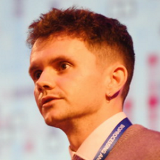
Conor McKay, Researcher, Astbury Centre for Structural Molecular Biology, University of Leeds

Conor is a final year PhD student at the University of Leeds in collaboration with AstraZeneca. His work centres around protein folding and aggregation in the context of neurodegenerative disease, protein therapeutics and outer membrane protein biogenesis in E.coli.

Kevin Metcalf, PhD, Associate Principal Scientist, Merck & Co., Inc.

Kevin Metcalf is an Associate Principal Scientist in Discovery Biologics at Merck & Co., Inc., South San Francisco, CA, USA. His work is focused on protein characterization and developability to support nomination of lead molecules.

Marissa Mock, PhD, Senior Research Director, Amgen Inc.

Marissa Mock is Senior Director, Research at Amgen, leading the Generative Biology team within Protein Therapeutics. Her team engineers biologic therapeutic candidates in Amgen’s portfolio using both classical and machine learning-assisted methods and laboratory technologies including yeast display and mammalian recombinant protein production. Marissa received her Ph.D. in Chemistry from the California Institute of Technology and completed postdoctoral studies in Molecular Biology at The Scripps Research Institute.

Geraldene Munsamy, PhD, Senior Scientist, Deep Learning, Basecamp Research Ltd.

Biochemist turned Deep Learning Scientist, Geraldene is a Senior Deep Learning Scientist at Basecamp Research. She holds a PhD in Pharmaceutical Chemistry and has transitioned from biochemistry to deep learning, specializing in protein design. Much of her work involves generative AI for protein design. By combining deep learning with large-scale biological data collected from across the globe, Geraldene aims to uncover patterns that advance our understanding of enzymes and other proteins. Some of her work includes ZymCTRL ('enzyme control'), a conditional language model trained on the enzyme sequence space that generates enzymes based on user-defined specifications. This work provides avenues for the development of new enzymes for industrial and therapeutic uses, pushing forward a greener, cleaner Earth. Geraldene has been recognized for her contributions to the field with publications in top conferences like NeurIPS and is an active member of the WIML community. With her expertise, Geraldene continues to drive innovation in protein design, aiming to tackle global challenges through advanced deep learning models and sustainable solutions.

David Noble, Data Scientist II, A Alpha Bio Inc.

David is a data scientist at A-Alpha Bio, where he works on applying large-scale datasets to generate insights and predictions around protein-protein interactions. His area of focus is in characterizing and discovering weak interactions to support the discovery of molecular glues. He received a bachelor's and master's degree in Data Science from U.C. Berkeley.

Marcin Paduch, PhD, Vice President, Head of Platform Biology, Metaphore Biotechnologies

Marcin is the Head of Platform Biology at Metaphore. He is a trained structural biologist and protein engineer bringing a passion for blending multidisciplinary science and technology. Marcin has a long track record of innovation and has led diverse teams in high-impact research collaborations, formulating successful strategies for drug discovery campaigns, and fast-tracked preclinical development. He has developed several high-throughput, data-driven drug discovery platforms, ranging from biotherapeutics, including cell therapies, to small molecules. Before joining Metaphore Bio, Marcin served as an Executive Director at Xilis, where he developed workflows for drug screening and mechanism of action optimization in organotypic cell culture and patient-derived tumor organoids. Before that, he led technology development efforts at Arsenal Bio, the first programmable cell therapy company, advancing logic gate CAR-T programs through the clinic, System1 neuroscience startup developing therapeutics in cerebral organoid models reinventing neuro drug discovery, and Grail, where he worked on developing the Galeri multicancer early detection test, which is expected to dramatically improve the current paradigms of cancer diagnostics and management. Before working in startups, Marcin spent nearly a decade as a director serving multiple industrial consortia and developing a portfolio of next-generation, antibody-based cancer therapies backed by major pharma companies. Marcin holds a PhD from the University of Wroclaw in biochemistry and molecular biology and a Master of Science in biotechnology.

Adithya Paramasivam, ML Scientist, Nabla Bio Inc

Adithya is an ML Scientist at Nabla Bio, where he works on developing methods for de novo design, antibody optimization, and soluble analogues for multi-pass membrane proteins. His areas of focus include internal modeling efforts and applications of the platform across partnerships. Prior to Nabla, he received a Bachelor’s in Computer Science from UC Berkeley.
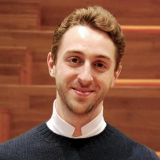
Ryan Peckner, PhD, Director, Machine Learning, Seismic Therapeutic

Ryan Peckner has been the head of machine learning at Seismic Therapeutic since early 2022, where he leads a team focused on applying ML to develop next-generation classes of non-immunogenic protein therapeutics. He earned his PhD in theoretical mathematics at Princeton University in 2015 and, after deciding to transition to an applied field, completed his postdoctoral training at the Broad Institute with an emphasis on the intersection of proteomics, genomics, and machine learning. Since entering biotech in early 2019, he has focused on developing and applying new machine learning techniques to structural biology, immunology, and drug development, beginning with models to probe TCR-pMHC interactions at Repertoire Immune Medicines and continuing with his work at Seismic.

Brian Pierce, PhD, Associate Professor, Cell Biology & Molecular Genetics, Institute for Bioscience and Biotechnology Research, University of Maryland

Dr. Brian Pierce is an Associate Professor at the University of Maryland in the Department of Cell Biology and Molecular Genetics and the Institute for Bioscience and Biotechnology Research. After receiving his Ph.D. in Bioinformatics from Boston University, he worked at Pfizer and the University of Massachusetts Medical School before joining the University of Maryland in 2014. His laboratory’s research area is computational structural biology, with a particular focus on immunology, including modeling and design of T cell receptors, antibodies, and vaccines. Dr. Pierce has 100 peer-reviewed publications, and he is a co-inventor for several patents on T cell receptors and vaccines. The Pierce lab has generated numerous tools and algorithms, including TCR3D, a database of T cell receptor structures, CoV3D, a database of coronavirus and antibody structures, and TCRmodel, an algorithm and web server to model T cell receptors and their complexes from sequence.
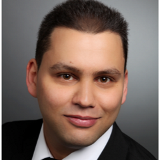
Reda Rawi, PhD, Staff Scientist and Co-Head, Structural Bioinformatics Core, NIH NIAID

Dr. Reda Rawi is currently a Staff Scientist and the Co-Head of the Structural Bioinformatics Core at the NIH's Vaccine Research Center (VRC). He earned his Diploma in Mathematics from the Applied University of Koblenz, Germany in 2007, his MSc in Bioinformatics from the Birkbeck college at the University of London, UK in 2008, and his PhD in Computational Biology from the University of Duisburg-Essen, Germany, in 2013, working with Prof. Dr. Daniel Hoffmann. After completing his PhD, Reda accepted a position as a postdoctoral scientist at the Qatar Computing Research Institute in Doha, Qatar, where he worked for 2.5 years. During that time, he developed and applied novel machine learning tools for structural biology related projects. In 2016, Reda was awarded a NIH postdoctoral fellowship and joined the Structural Bioinformatics Core of the VRC, the world's leading research facility for vaccine design. Within just 3 years he was promoted to a Staff Scientist and co-head of the core. While at the VRC Reda was leading multiple vaccine design and antibody improvement efforts targeting a diverse set of pathogens, such as HIV-1, Influenza, or Malaria. Reda introduced the computer science field of advanced machine learning to the VRC and successfully applied his expertise to solve scientific tasks of critical importance. Dr. Rawi has over 50 peer-reviewed publications and was invited to multiple conferences to update on his work.
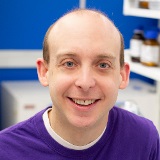
Gabriel J. Rocklin, PhD, Assistant Professor, Pharmacology, Northwestern University

Gabriel Rocklin did his Ph.D. research at the University of California, San Francisco, supervised by Brian Shoichet and Ken Dill. As a postdoctoral fellow with David Baker at the University of Washington, he pioneered the use of large-scale protein design to understand protein biophysics. In 2019 he started his independent lab in the Department of Pharmacology and Center for Synthetic Biology at Northwestern University. There, his group develops high-throughput methods to understand protein biophysics and to design new protein therapeutics.

Jeffrey Ruffolo, PhD, Head of Protein Design, Profluent Bio

Jeff Ruffolo is Head of Protein Design at Profluent Bio, where he develops machine learning methods for functional protein design. He obtained his PhD in biophysics at Johns Hopkins University, where he worked in the lab of Jeffrey Gray. During this time, he developed deep learning tools for antibody structure prediction, language modeling, and representation learning. At Profluent, he has contributed to the OpenCRISPR initiative and led the development of next-generation protein language models with atomistic control for function protein generation.

Matthieu Schapira, PhD, Principal Investigator, Structural Genomics Consortium, Professor, Pharmacology & Toxicology, University of Toronto

Matthieu holds a Ph.D. in biochemistry from Ecole Normale Superieure, Paris. After graduating in 1995, he completed a couple of post-docs in protein crystallography and computational chemistry at New York University Medical Center. After working in biotechs in San Diego and in France, he joined in 2007 the Structural Genomics Consortium in Toronto as head of research informatics. He holds an Associate Professor cross-appointment with the Department of Pharmacology and Toxicology at University of Toronto.

Amir P. Shanehsazzadeh, Artificial Intelligence Scientist, Absci Corp.

Amir Shanehsazzadeh, Staff AI Scientist, develops generative models for antibodies and works at the interface of AI and wet lab, designing large libraries of antibodies for high-throughput screening. He leads the AI research team at Absci. Prior to joining Absci, he worked on ML-guided AAV capsid design for gene therapy at Dyno Therapeutics and researched ML for proteins at Google Brain, D. E. Shaw Research, and Fox Chase Cancer Center. He graduated from Harvard University, receiving a BA in Mathematics and MS in Statistics.
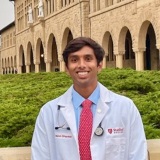
Varun Shanker, MD-PhD Student, Biophysics, Stanford University

Varun Shanker is an MD-PhD candidate at Stanford University School of Medicine and the Stanford Biophysics Graduate Program. His research, conducted in the Peter Kim Lab and in collaboration with Brian Hie, focuses on developing methods for protein evolution and design using large language models. Varun's work aims to advance translational applications, particularly therapeutic antibody development. He holds a BS in Bioengineering from Caltech.
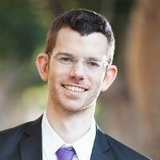
Reshef Shilon, Head of AI, Biolojic Design

Reshef is the Head of AI at Biolojic Design. He has 20+ years of experience in computer science research and software engineering, with 10+ years in management and technical leadership. He started his career in an elite intelligence unit in the IDF as a mathematics and algorithms researcher. Following that he did his masters in Natural Language Processing (NLP) in the field of Machine Translation (Hebrew-Arabic), as a part of the interdisciplinary program for outstanding students in Tel Aviv University. During his studies he worked as a part-time researcher and software engineer in Thomson Reuters. After his studies, he spent several years doing research at various NLP start-ups and as an NLP consultant. The department he built at Ginger Software, focusing on Automatic Speech Recognition and Natural Language Understanding, was acquired by Intel in 2014, and he moved to the Silicon Valley shortly after. He spent 2 years at Intel working on virtual personal assistants and managing a research team. Later, he moved to Facebook, where he spent 6 years, working mostly on automatic detection of various Trust & Safety violations, such as Hate Speech, Misinformation, Suicide Prevention, Graphical Violence, and others. In 2022 he returned to Israel with his family, and moved to Biologic Design, with the goal of leveraging AI and data science for designing drugs for cancer.
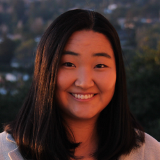
Jung-Eun (June) Shin, PhD, Machine Learning Scientist, Seismic Therapeutic

I am a machine learning scientist at Seismic Therapeutic, where we are developing immunology therapeutics through our platform combining machine learning, protein engineering, structural biology, and translational immunology. While leading one of our early-stage drug discovery programs, I apply deep learning models of protein sequence and structure for functional design of developable and non-immunogenic biologics. I received my doctorate in Debora Marks' lab at Harvard Medical School, where I developed and tested deep learning models for protein mutation effect prediction and protein design.
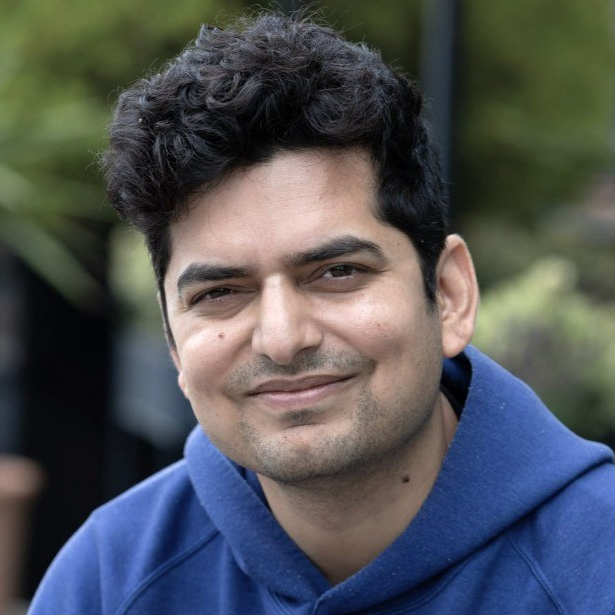
Shamit Shrivastava, CoFounder & CEO, Apoha

Dr. Shamit Shrivastava is a mechanical engineer and biophysicist, known for his pioneering work on the thermodynamic theory of nerve pulse propagation. His research focuses on nonlinear acoustic waves and their role in signal transmission within biological systems. As co-founder and CEO of Apoha, a deep tech company, Shamit has transformed his scientific insights into a revolutionary computing platform called the "liquid brain," applying reservoir computing to solve critical challenges like antibody developability. His vision is centered on translating fundamental discoveries into foundational technologies that tackle seemingly impossible problems in biophysics and material discovery.

Arvind Sivasubramanian, PhD, Director, Computational Biology & Platform Technologies, Adimab LLC

Dr. Arvind Sivasubramanian is a Director, Computational Biology and Platform Technologies, at Adimab LLC. In this role, he oversees a group involved in hybrid computational-experimental activities for the discovery and optimization of antibody and TCR biologics. His expertise includes the design of synthetic IgG and TCR libraries, the structure-based design of bispecific antibodies, and in silico predictions of antibody-antigen interactions. He received his Ph.D. in Chemical Engineering from Drexel University, Philadelphia, PA, after which he completed a post-doc in antibody:antigen docking with Prof. Jeff Gray at Johns Hopkins University, Baltimore, MD.
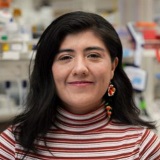
Susana Vazquez Torres, PhD Student, Protein Design, University of Washington

I am a fourth-year PhD student in the Baker lab, focusing on designing protein binders for bioactive peptides. My work includes developing artificial proteins to create diagnostic tools for peptide hormones linked to diabetes and Alzheimer's disease. Additionally, I use deep learning tools to create affordable and effective treatments for snakebite envenoming.
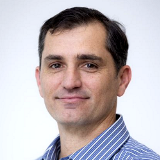
Andrew B. Waight, PhD, Senior Director, Machine Learning, Discovery Biologics & Protein Sciences, Merck Research Labs

Andrew Waight is a Senior Director at Merck and Co. and is the team lead on the MRL Discovery Biologics AI/ML initiative to develop and deploy computational tools to help scientists make informed decisions and deliver better clinical candidates faster.

Wei Wang, PhD, Professor, Chemistry and Biochemistry, University of California San Diego

Wei Wang is a Professor in the Department of Chemistry and Biochemistry and Department of Cellular and Molecular Medicine at University of California, San Diego (UCSD). His research is focused on uncovering the regulatory architecture of the genome and understanding the underlying principles at genomic and molecular levels. One of the focus areas of his lab is to develop new AI technologies for engineering antibody and protein binding to specific targets.

Alon Wellner, VP Biology, Antibody Engineering, Aureka Biotechnologies

Alon Wellner is the Vice President of Biology at Aureka Biotechnologies, leading a team to develop a cutting-edge therapeutic discovery pipeline using high-throughput biology and AI. He completed postdoctoral training at UC Irvine and holds a Ph.D. in Biochemistry from the Weizmann Institute of Science. With extensive experience in protein and antibody engineering, Alon has held multiple leadership roles, managing multinational research teams and pioneering novel drug discovery platforms.


Matt Wheeler, PhD, JD, Senior Associate, Patents and Innovations Group, Wilson Sonsini Goodrich & Rosati

Dr. Matt Wheeler is an associate in the patents and innovations practice group in Wilson Sonsini Goodrich & Rosati’s San Diego office, where he provides strategic patent counseling to clients on a wide variety of technologies. Matt’s scientific expertise includes antibodies, biologics, diagnostics, and medical devices. Matt works with clients at all stages, from start-ups to public companies, to develop and implement global patent strategies. His counseling experience includes freedom to operate analysis; due diligence for mergers and acquisitions, private financings, and public markets; and all stages of preparation and prosecution of patent filings in the U.S. and around the world, including post-grant procedures. Matt first joined Wilson Sonsini as a patent agent in 2014 and transitioned to an associate role after attending law school at the University of San Diego. Prior to joining the firm, Matt obtained his Ph.D. in biomedical sciences from UC San Diego, where he studied immunology and antibody engineering. After receiving his Ph.D., Matt conducted postdoctoral studies at The Scripps Research Institute where he studied the role ER stress plays in inflammation and metabolic diseases.
